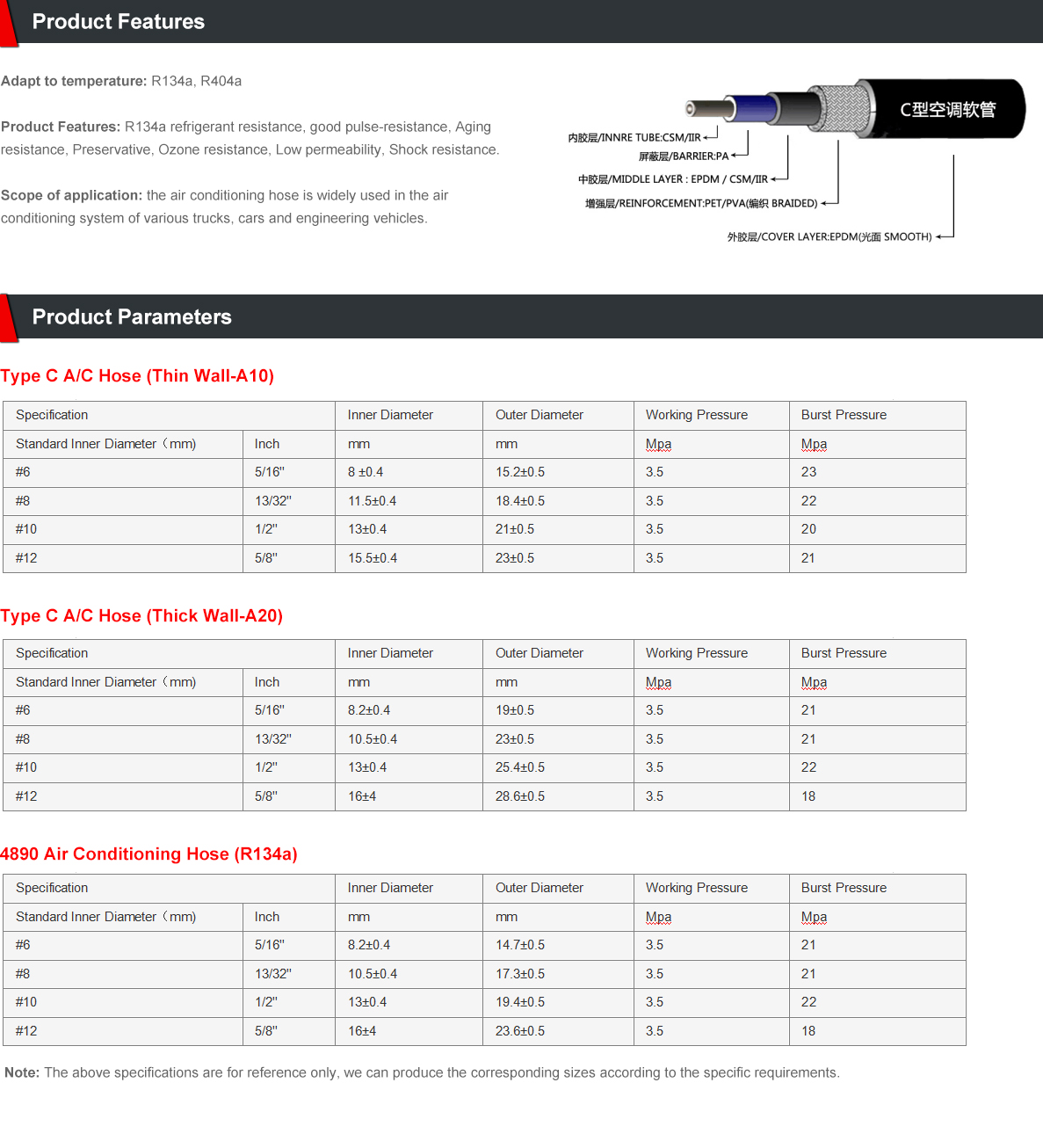power steering hose noise
Understanding Power Steering Hose Noise Causes and Solutions
Power steering is a vital component of modern vehicles, allowing for easier steering and greater control. However, like any mechanical system, it can develop issues over time, one of which is noise emanating from the power steering hose. This article will explore the causes of power steering hose noise, its implications, and potential solutions.
What is the Power Steering Hose?
The power steering hose is an integral part of the power steering system. It connects the power steering pump to the steering gear, facilitating the flow of hydraulic fluid. This fluid is responsible for amplifying the force applied to the steering wheel, making it easier to turn the vehicle. When the power steering hose is functioning correctly, the system should operate quietly and efficiently. However, various factors can lead to noise, indicating potential problems.
Common Causes of Power Steering Hose Noise
1. Air Bubbles in the System One of the most common reasons for noise in the power steering hose is air trapped in the hydraulic fluid. When air is mixed with the fluid, it can create a whirring or whining sound as the power steering pump struggles to push the fluid through the system. This can happen if there has been a recent fluid change or if there is a leak causing air to enter the system.
2. Fluid Level Issues Insufficient power steering fluid can result in increased friction and noise. If the fluid level is low due to a leak or lack of maintenance, the pump may not be able to operate effectively, leading to a whining noise when turning the wheel. It's essential to regularly check fluid levels and top them off as needed.
3. Worn or Damaged Hose Over time, the power steering hose can wear out due to exposure to heat and pressure. A cracked or damaged hose may cause fluid to leak, leading to both a reduction in fluid levels and noise as the pump works harder than it should. This can produce a groaning or grinding noise when steering.
4. Faulty Power Steering Pump Noise may also originate from the power steering pump itself rather than the hose. If the pump is failing, it can create a whine that resonates through the power steering hose. A diagnostic check is crucial in such cases to determine whether the pump or the hose is at fault.
power steering hose noise

5. Belt Issues The power steering system is connected to the engine via a belt. If this belt becomes loose, worn, or damaged, it can produce a squealing sound that may be mistaken for hose noise. Ensuring that the belt is in good condition is an important aspect of preventing power steering noise.
Solutions to Power Steering Hose Noise
1. Check Fluid Levels Regular maintenance should include checking the power steering fluid levels. If low, top it off with the recommended type of fluid for your vehicle. If fluid levels frequently drop, inspect the system for leaks.
2. Bleed the System If air bubbles are suspected, bleeding the power steering system can eliminate trapped air. This process typically involves turning the steering wheel from lock to lock while the engine is running, allowing fluid to circulate and push out any air.
3. Inspect the Hose A thorough inspection of the power steering hose for any visible signs of wear or damage is essential. If cracks or leaks are discovered, replacing the hose promptly can prevent further damage to the system.
4. Evaluate the Pump and Belt If the noise persists, have a professional evaluate both the power steering pump and the belt. A faulty pump may need to be replaced, while a worn belt can be adjusted or replaced to ensure proper tension.
5. Consult a Mechanic If you are unable to identify the source of the noise or resolve the issue, consulting a qualified mechanic is advisable. They can perform a comprehensive diagnostic to pinpoint the problem and recommend appropriate repairs.
Conclusion
Power steering hose noise can indicate a range of issues, from simple fluid level concerns to more complex mechanical failures. By understanding the causes and solutions, drivers can maintain their power steering systems effectively, ensuring smoother and quieter operation. Regular maintenance and timely repairs are key to extending the lifespan of the power steering system and maintaining vehicle safety and performance.
-
Ultimate Spiral Protection for Hoses & CablesNewsJun.26,2025
-
The Ultimate Quick-Connect Solutions for Every NeedNewsJun.26,2025
-
SAE J1401 Brake Hose: Reliable Choice for Safe BrakingNewsJun.26,2025
-
Reliable J2064 A/C Hoses for Real-World Cooling NeedsNewsJun.26,2025
-
Heavy-Duty Sewer Jetting Hoses Built to LastNewsJun.26,2025
-
Fix Power Steering Tube Leaks Fast – Durable & Affordable SolutionNewsJun.26,2025

